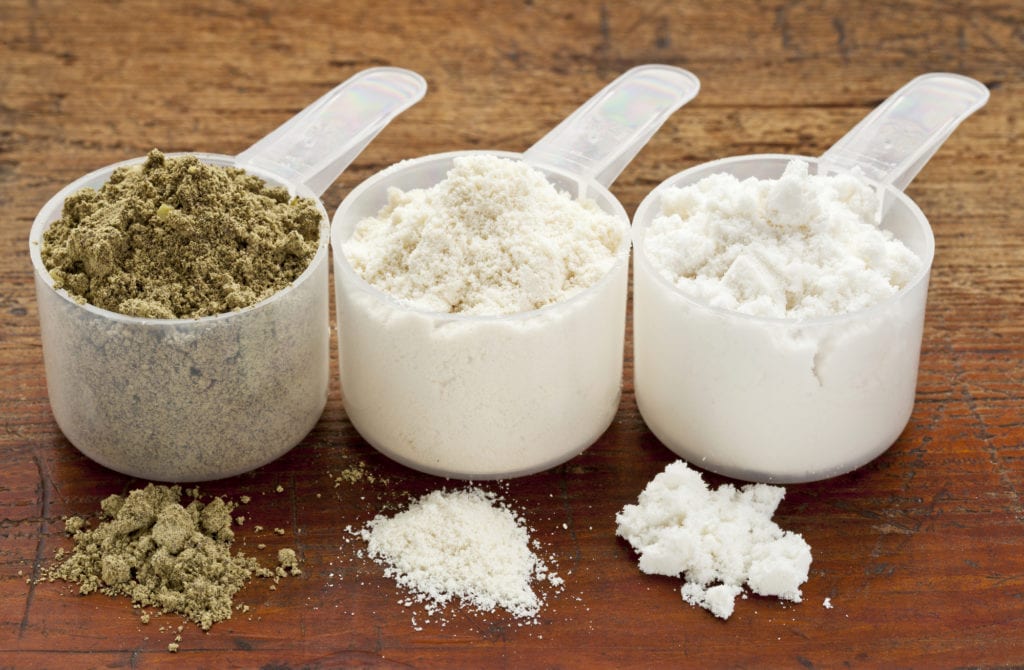
Protein powders – what you should know
Protein powder is big business these days and there is a huge range both in terms of cost and quality. They can be a healthy addition to most diets, particularly if you exercise a lot or just struggle to get enough protein from food (vegetarians and vegans in particular). But before you buy ALWAYS check the ingredients and have an understanding of what should and shouldn’t be in your protein powder.
Here are the important points when buying protein powders:
✅ WHEY protein is generally considered a top choice for athletes because it is absorbed very quickly and it is a particularly good source of branched-chain amino acids (BCAAs) such as leucine, which are particularly good for muscle growth. While easy to digest, it can cause digestive problems. If this is you I recommend choosing another form of protein powder. Cow’s milk is ~20% whey (breast milk is ~60% whey).
✅ CASEIN makes up the other 80% of protein in cows milk. It is slow to digest, taking several hours and so not really used as a protein post workout. People often look for casein-rich bedtime drinks (why a glass of milk is associated with bed time). Athletes and people who exercise may choose casein for its ability to improve recovery and reduce muscle breakdown while you sleep.
✅ SOY a slower digesting protein than whey. A good option for people looking to avoid dairy. Again, quality is of importance, and ALWAYS make sure to choose GMO free soy. Soy has a lower biological value than whey, which is a measure of how well your body is able to absorb the protein.
✅ PEA PROTEIN – easy to digest, vegan, and tends to be hypo-allergenic. Slow digesting so not the best choice post exercise. Pea protein is very satiating, so is a good choice if you’re looking for a supplement to help keep you feeling full.
✅ HEMP PROTEIN – vegan, mineral rich and a good source of omega 3.
You often find plant-based or vegan proteins contain a mix of pea, hemp and maybe rice or other food sources of protein such as quinoa or chia seeds which maximises the amino acid profile. When choosing plant-based powders try to choose a ‘complete protein’.
WHAT TO AVOID
Watch out for unwanted additives such as sugars, sweeteners, maltodextrin and skim milk/milk solids, which are bulking agents or fillers. Other factors to consider depending on your requirements may be whether they contain gluten, lactose, or artificial sweeteners or sugars. People suffering with kidney disease may need to choose a protein powder with a lower protein content.
It’s important to note that you shouldn’t be using protein powders as meal replacements. They are designed to SUPPLEMENT and you should always get your nutrients from food where possible. For a comprehensive analysis of your protein needs and current food diary, get in touch for a free call to discuss how I can help you.
